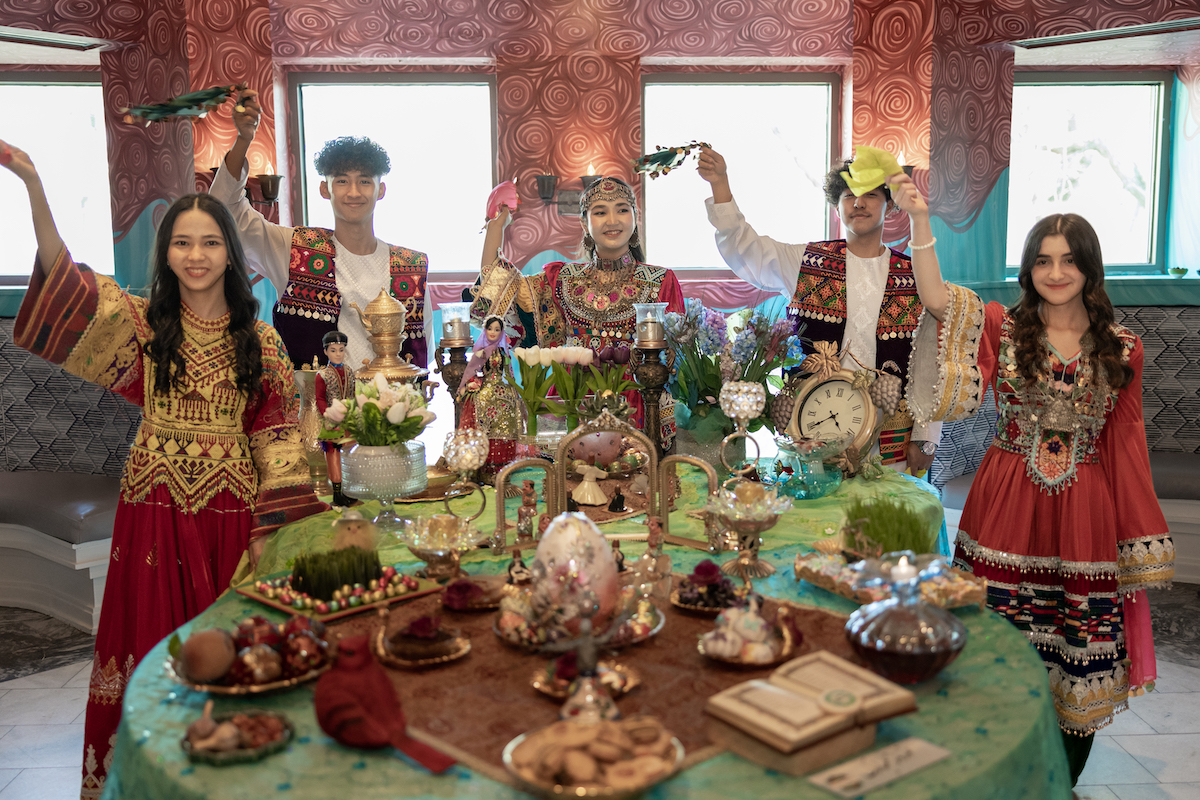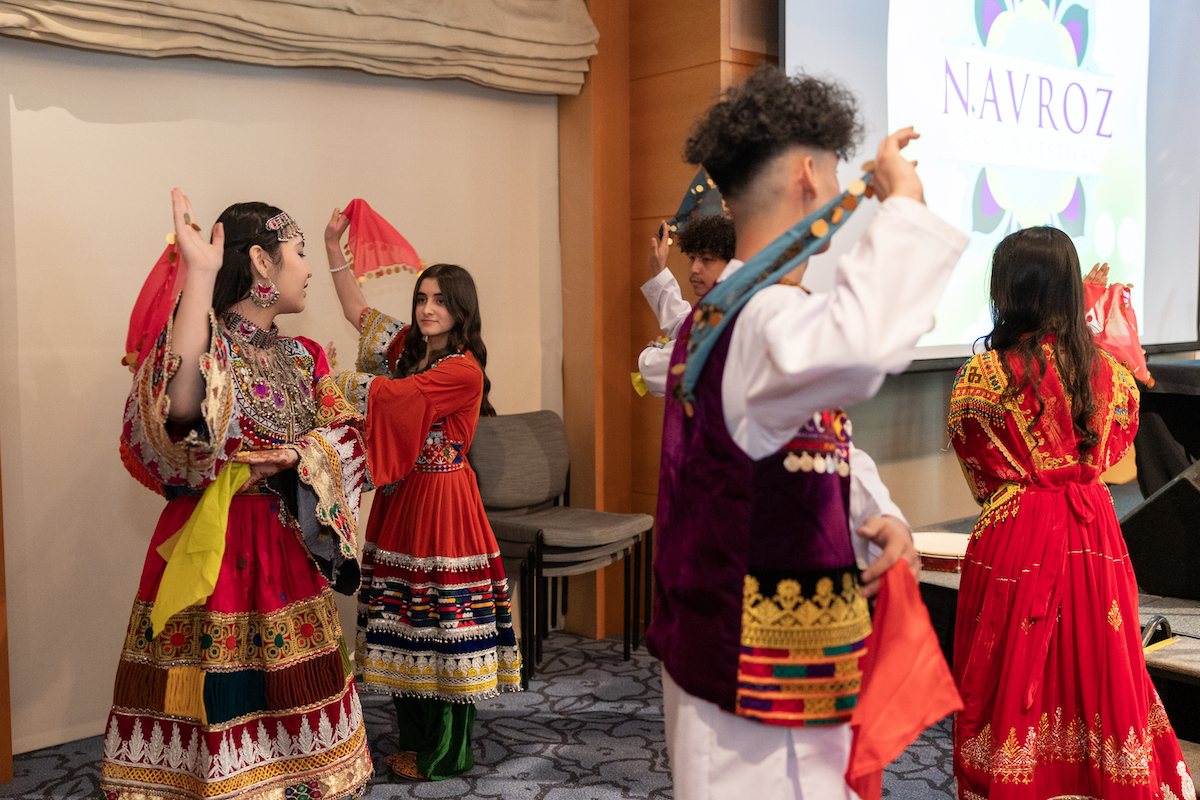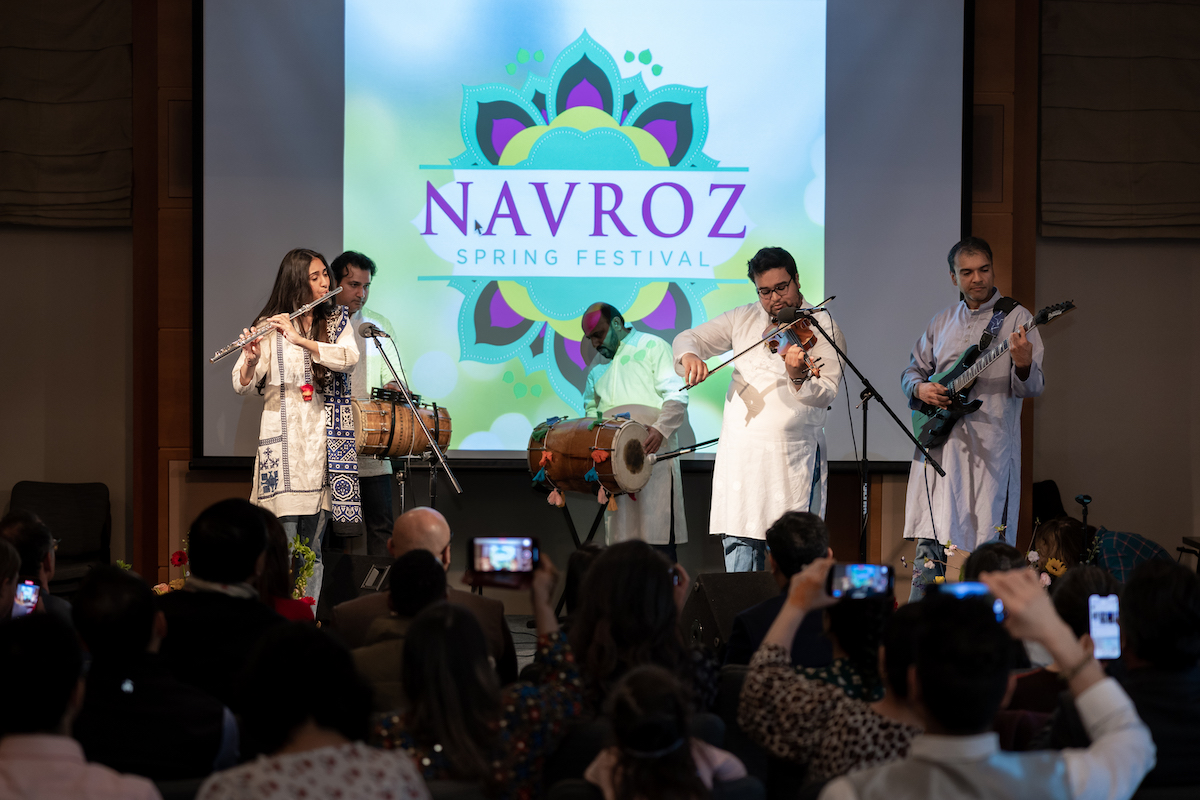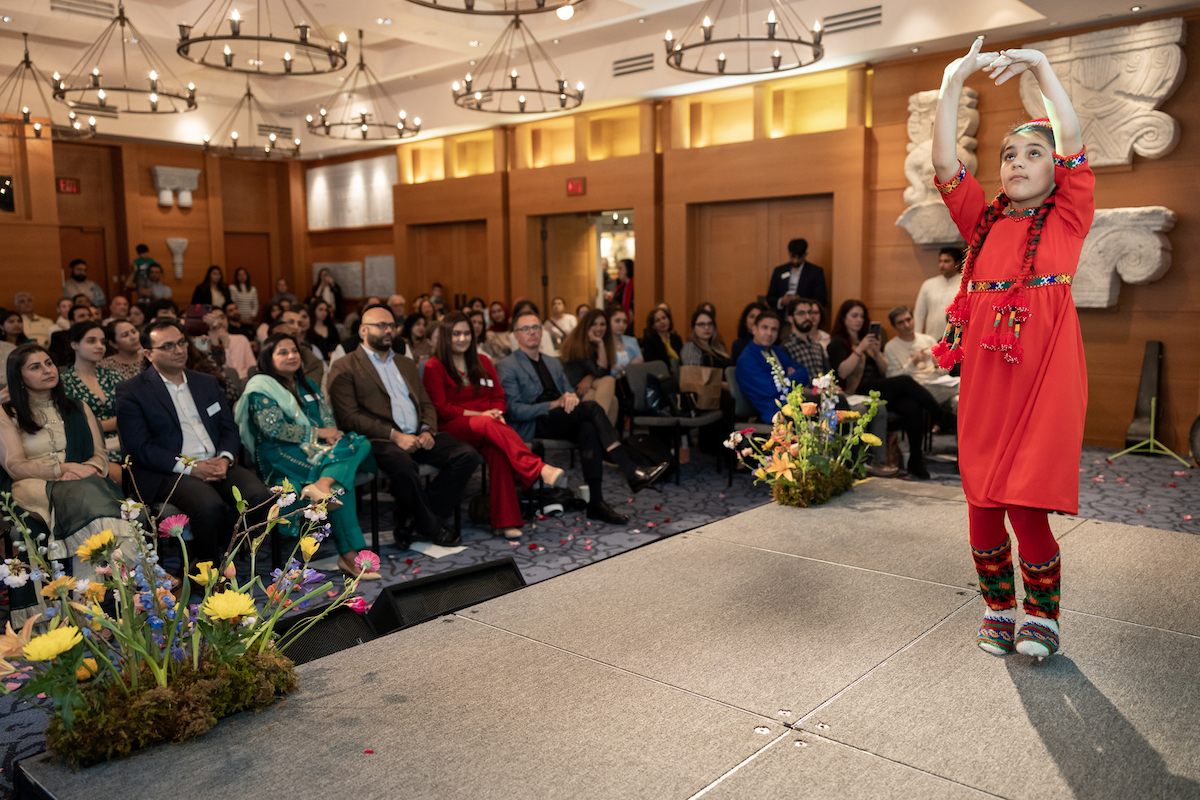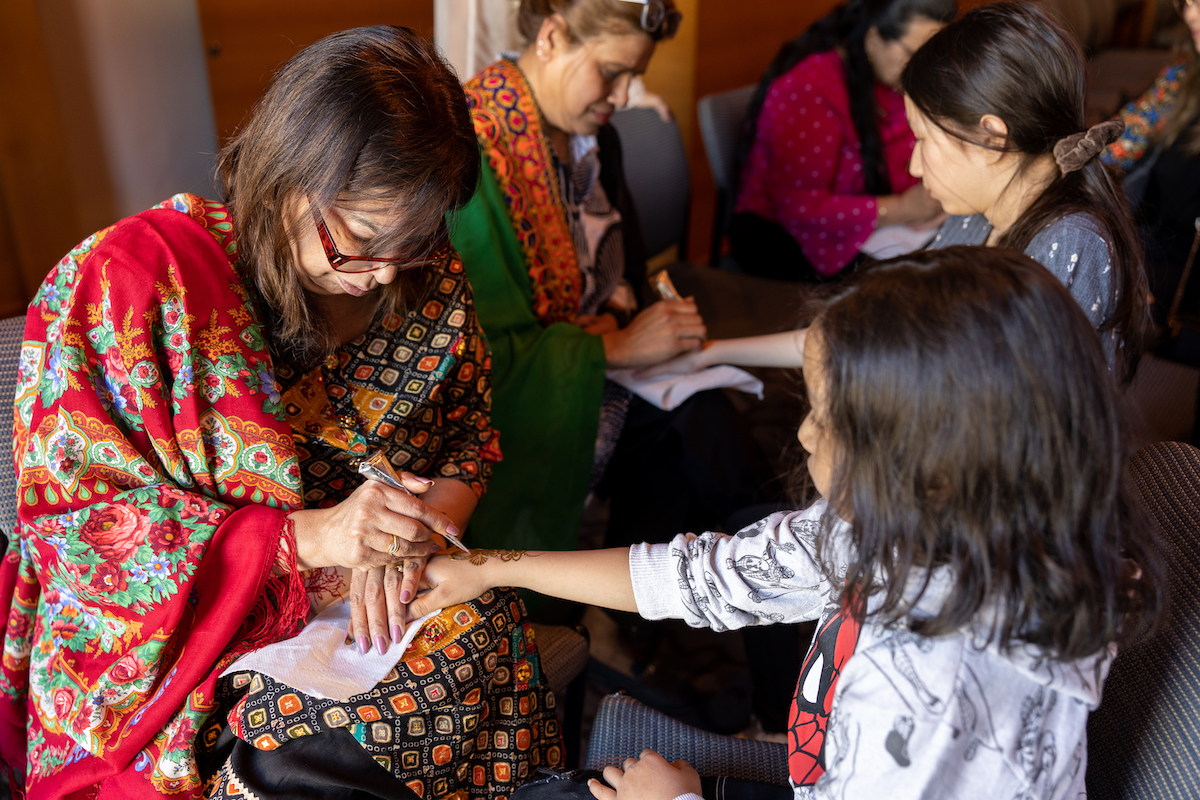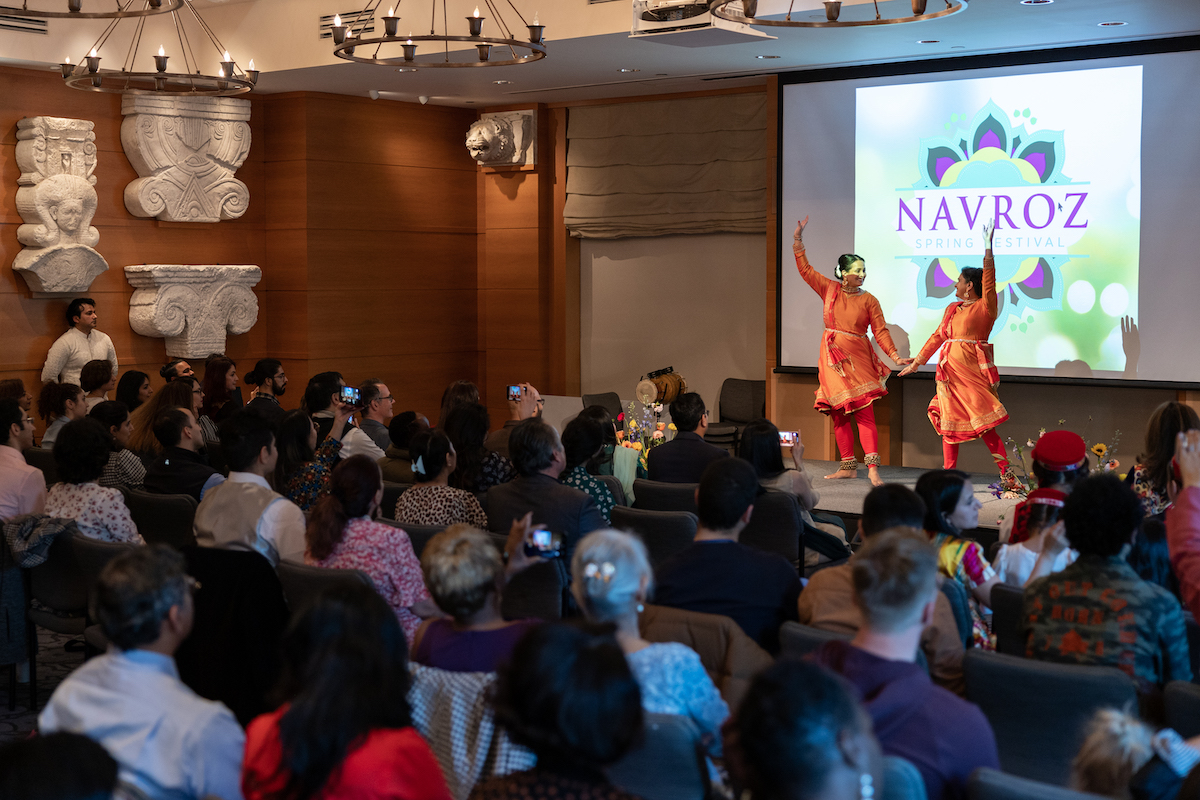For the second consecutive year, the Emory community gathered to celebrate Nowruz, the Persian New Year, marking the arrival of spring. Rooted in ancient Persian traditions, Nowruz, or “new day,” was commemorated at the Michael C. Carlos Museum through cultural activities and musical performances, followed by a dinner at Brooks Commons of Cannon Chapel.
The event was a joint effort of the Emory Persian Cultural Association, the Emory Muslim Students Association, the Ismaili Council for the Southeastern United States, the Emory Office of Spiritual and Religious Life, the Michael C. Carlos Museum and Emory Libraries.
Bahram Borgheai, a postdoctoral fellow, advisor of the Emory Persian Cultural Association and performer at the celebration, noted how much it meant to him that people from many different backgrounds attended the celebration and enjoyed the festivities.
“This event gave the Persian community at Emory not only the chance to feel home in the new year, but also provided a diversity which cannot even happen in our own home countries,” Borgheai says. “It demonstrated how culture, music and dance can go beyond borders. It was so exciting for me to see how our music speaks to the hearts of people who may not even know a word of our songs’ lyrics.”
The array of cultural expressions of Nowruz, featuring traditional arts and performances from Afghanistan, India, Iran, Pakistan and Tajikistan, was a collective effort that saw broad participation. Emory’s students, alumni and staff from a variety of sectors were instrumental in the event’s success. Members of the broader community, including the Persian and Ismaili Muslim communities, were also involved.
Nadya Merchant, volunteer with the Ismaili Council for the Southeastern United States, highlighted the collaborative spirit of the celebration.
“As Navroz marks the first day of the Persian New Year and the arrival of spring, it is a very special time for reflection, renewal and celebration for many cultures and communities,” Merchant says. “This diversity can even be witnessed in the multiple ways in which we can pronounce and spell ‘Navroz, Nowruz, Norooz, etc.’, which literally means ‘New Day.’ We can’t wait to celebrate Navroz at Emory again next year.”
Emory students Katherine Khayami, Lelia Keshavarz and Amal Panjwani acted as emcees for the event, introducing musical and dance performances. The three students expressed their joy and pride in sharing their cultural traditions with the Emory community.
Khayami, founder and president of the Persian Cultural Association, says, “It was a delight to celebrate Norooz, a holiday that embodies Persian culture, with the Emory community. I hope the club can continue to share and celebrate Persian culture with the Emory community.”
“I grew up making a haft sin, coloring eggs with my little brother and going to mehmoonis for Nowruz with my family,” adds Keshavarz, vice president of the Persian Cultural Association. “It is such a privilege to bring these traditions to Emory for a second year in a row. I'm so grateful for everyone that came out to celebrate Nowruz with us.”
Amal Panjwami, a board member of the Emory Muslim Student Association, appreciated Emory's collaboration with the Ismaili Council as well as other campus organizations. “Seeing the diverse groups of people represented in both the audience and the performers was truly heartwarming. Overall, I found the entire event to be a great celebration of Emory's partnership with the larger Atlanta community and was very happy to see the group come together to celebrate this festival of new beginnings.”
“It was an amazing night that brought people from different cultures together,” says Neda Zeraatkar, Middle East and Islamic studies librarian. “The colorful dress codes made it such a memorable experience.”
Munir Meghjani, past president of the Emory Alumni Board and a member of the Ismaili community, believes the event is significant.
“When I first came to Oxford College, it was for its rankings and the expectations of South Asian parents to attend at top-tier university,” he says. “The diversity of the student body was a bonus that I wouldn’t quite appreciate until much later. Now, years later, I proudly attend Emory events in my traditional garb, always received with curiosity and warmth.
“To bring together Emory and the Carlos Museum with the Ismaili community to celebrate Navrouz publicly was a fulfillment of a long-held dream,” Meghjani adds. “Emory recognizes the difference between being welcomed and feeling a true sense of belonging. This celebration, followed by an Iftar dinner, is a testament to Emory’s commitment to its values. Honoring our diversity together makes us more human.”

